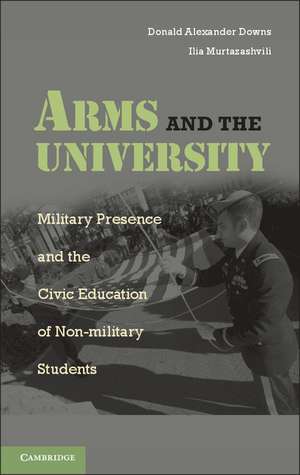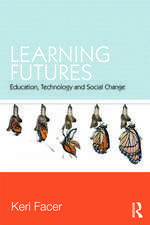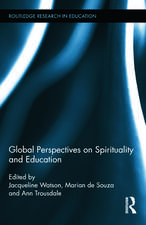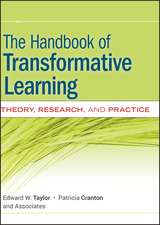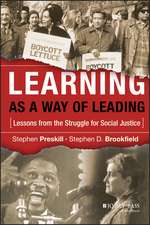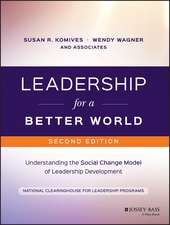Arms and the University: Military Presence and the Civic Education of Non-Military Students
Autor Donald Alexander Downs, Ilia Murtazashvilien Limba Engleză Paperback – 26 feb 2012
| Toate formatele și edițiile | Preț | Express |
|---|---|---|
| Paperback (1) | 294.79 lei 6-8 săpt. | |
| Cambridge University Press – 26 feb 2012 | 294.79 lei 6-8 săpt. | |
| Hardback (1) | 647.82 lei 6-8 săpt. | |
| Cambridge University Press – 26 feb 2012 | 647.82 lei 6-8 săpt. |
Preț: 294.79 lei
Nou
Puncte Express: 442
Preț estimativ în valută:
56.41€ • 60.32$ • 47.03£
56.41€ • 60.32$ • 47.03£
Carte tipărită la comandă
Livrare economică 18 aprilie-02 mai
Preluare comenzi: 021 569.72.76
Specificații
ISBN-13: 9780521156707
ISBN-10: 052115670X
Pagini: 456
Ilustrații: 14 tables
Dimensiuni: 155 x 235 x 25 mm
Greutate: 0.62 kg
Ediția:New.
Editura: Cambridge University Press
Colecția Cambridge University Press
Locul publicării:New York, United States
ISBN-10: 052115670X
Pagini: 456
Ilustrații: 14 tables
Dimensiuni: 155 x 235 x 25 mm
Greutate: 0.62 kg
Ediția:New.
Editura: Cambridge University Press
Colecția Cambridge University Press
Locul publicării:New York, United States
Cuprins
Part I. A Normative and Pedagogical Framework: 1. The closing of the university mind: the military/university gap and the problem of civic and liberal education; 2. Education in the regime: how a military presence can enhance civic and liberal education; Part II. ROTC and the University: 3. ROTC and the university: an introduction; 4. ROTC and the Ivies: before the storm; 5. ROTC and the Ivies: the divorce; 6. ROTC, Columbia, and the Ivy League: Sisyphus renews his quest to renew a troubled relationship; 7. Post-DADT: Sisyphus nears the top of the mountain; 8. Pedagogy and military presence: the educational influence of student-soldiers in their own words; 9. Winning hearts and minds?: The consequences of military presence for non-military students; Part III. Military History Examined: 10. Military history: an endangered or protected species?; 11. Half empty or half full?: Military historians' perspectives on the status of military history and the leading departments; 12. Military presence in security studies: political realism (re)considered; 13. Security studies in the wake of the Cold War university: paragons of productive fiction, or throwing the baby out with the bathwater?; Part IV. Concluding Thoughts: 14. Conclusion: placing the military in the university.
Recenzii
"Distrust or disdain for ‘the military’ may foster one’s isolation from those more familiar with it, and lead to mutual misunderstanding. Utilizing relevant political theory and sound empirical evidence, Downs and Murtazashvili demonstrate that the university’s role in providing civic and liberal education is fostered, rather than injured, by enabling members of ROTC units and student veterans to interact with other students in classrooms (and cafeterias). They note cogently that ignorance of military institutions and wars impede students and potential future policymakers from grasping strategic limits in crises. A long overdue case for the return of ROTC to those campuses that exiled them over a generation ago, as well as a good brief for the teaching of military history." —Peter Karsten, University of Pittsburgh, author of Law, Soldiers & Combat
"Arms and the University provides the best look at the critical topic of the American military on campus currently in print. It also gets to the heart of the issue of how democracies learn to co-exist with the often undemocratic institutions that defend them. This book illuminates the tensions, the cooperation, and the conflicts inherent in an unusual relationship. It is a must-read for those who want to learn more about how we as a society educate and defend ourselves." —Michael S. Neiberg, author of Making Citizen-Soldiers
"Downs and Murtazashvili offer a thoughtful analysis of the inherent tensions that exist in the military’s involvement in American universities. They make a strong case for keeping military history and the study of international security issues part of the diversity of ideas that they believe necessarily underlie both an effective civic education and a truly liberal education." —Harvey M. Sapolsky, Massachusetts Institute of Technology, emeritus
"Anyone who visits the nation's major universities observes the ubiquity of athletics and the absence of the military. Although the United States has been at war for a decade, our universities have largely avoided any serious discussion of the subject. Arms and the University explains the sources of military exclusion on many campuses, and it examines the intellectual and policy ramifications. The authors make an eloquent case for liberal education and the vital role that military perspectives must play, along with non-military points of view, in a free marketplace of ideas. Every citizen who cares about contemporary foreign policy, civil-military relations, and the health of democracy should read this urgent book." —Jeremi Suri, University of Texas, Austin, author of Liberty's Surest Guardian: American Nation-Building from the Founders to Obama
"Arms and the University provides the best look at the critical topic of the American military on campus currently in print. It also gets to the heart of the issue of how democracies learn to co-exist with the often undemocratic institutions that defend them. This book illuminates the tensions, the cooperation, and the conflicts inherent in an unusual relationship. It is a must-read for those who want to learn more about how we as a society educate and defend ourselves." —Michael S. Neiberg, author of Making Citizen-Soldiers
"Downs and Murtazashvili offer a thoughtful analysis of the inherent tensions that exist in the military’s involvement in American universities. They make a strong case for keeping military history and the study of international security issues part of the diversity of ideas that they believe necessarily underlie both an effective civic education and a truly liberal education." —Harvey M. Sapolsky, Massachusetts Institute of Technology, emeritus
"Anyone who visits the nation's major universities observes the ubiquity of athletics and the absence of the military. Although the United States has been at war for a decade, our universities have largely avoided any serious discussion of the subject. Arms and the University explains the sources of military exclusion on many campuses, and it examines the intellectual and policy ramifications. The authors make an eloquent case for liberal education and the vital role that military perspectives must play, along with non-military points of view, in a free marketplace of ideas. Every citizen who cares about contemporary foreign policy, civil-military relations, and the health of democracy should read this urgent book." —Jeremi Suri, University of Texas, Austin, author of Liberty's Surest Guardian: American Nation-Building from the Founders to Obama
Notă biografică
Descriere
Demonstrates how some military presence on campus can contribute to the diversity of ideas and the education of all students.
